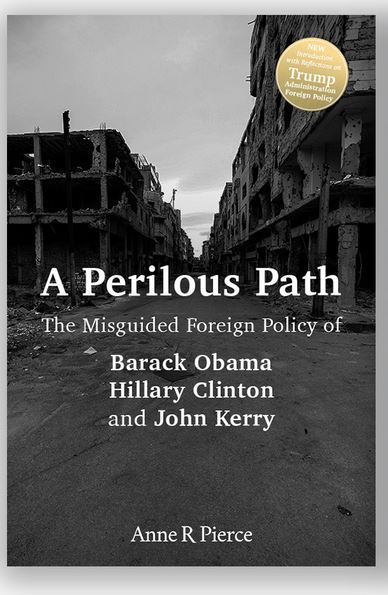Americans, their new president and his team, and the 115th Congress face a world that, in former Secretary of Defense Chuck Hagel’s memorable words, is “exploding all over.” New Secretary of Defense James Mattis asserted in his confirmation hearing that the world order “is under the biggest threat since WWII.” Hostilities, atrocities and weapons programs are escalating around the globe.
Syria is a cataclysm of war and despair. Iraq, Lebanon, Yemen, Sudan, Libya, Venezuela, and Ukraine are in crisis. The Middle East is beset by terrorism and the growing influence of Russia and Iran. Iran and North Korea are ever closer to becoming serious nuclear powers. China is flexing its geopolitical muscle, expanding its military power, and aggressively building islands in the South China Sea. Russia is bullying and destabilizing Eastern and Central Europe, and pressuring the NATO alliance itself. Islamic extremism, anti-Semitism, persecution of Christians, targeting of religious minorities, and severe human rights violations are on the rise.
American foreign policy at its best emphasizes both national security and security partnerships, and human rights. But President Obama and Secretaries of State Clinton and Kerry emphasized neither. They generally treated democratic allies and pro-democracy groups ungenerously, while treating adversaries and anti-democratic groups generously. The misguided hope was to create a unified, if morally mute world in which we could all, somehow, get along. Our debility and lack of compassion in turn gave hostile forces momentum, and fuel for their propaganda. As the United States weakened traditional relationships and surrendered leadership, trust in our reliability waned, while questions about our priorities grew. Often, we alienated the very moderate and peaceful countries and peoples we need on our side.
Having delayed taking responsibility, the Obama administration finally found itself in a world so dangerous that it had no choice but to respond. In the last year, the Obama foreign policy team reassessed some of its policies of retrenchment and put more energy into defensive measures, particularly in Europe. Now is the time to rise above partisan grievances and get to work on the risks we all face to our freedom and security. James Mattis’s reassurances to Asian allies and warning to North Korea regarding use of nuclear weapons, and the Trump administration’s decision, in collaboration with Congress, to increase sanctions on Iran deserve support. That support can and should be accompanied by insistence that the administration take Russian aggression seriously. Let us hope that Nikki Haley’s unambiguous critique of Russian aggression at the UN signals broad-based policies.
Iran’s unrelenting pursuit of nuclear weapons and ballistic missiles, sponsorship of terror and regional aggression should make containing Iran and stopping its nuclear advances an American foreign policy priority. Assad’s reign of terror, use of WMD, enactment of some the worst atrocities the world has seen — and the opportunities for “bad actors” the Syrian cataclysm provides — should make finding an end to the Assad regime an American foreign policy priority. Russia’s support of Syria and Iran, ruthless aggression in Ukraine and Syria, and expansionist designs in Eurasia and elsewhere, should make containing Russia an American foreign policy priority. North Korea’s severe, systemic human rights violations and swiftly expanding nuclear program should make speaking out for the oppressed and enhancing our defenses, including missile defenses, an American foreign policy priority.
Jihadist forces and aggressor regimes have capitalized on the vacuum created by the equivocation of the United States and the “international community,” and they will continue do so. Until we get our moral and strategic priorities right, the challenges to the United States of America and the ideas for which it stands will only increase. We should resist narrowmindedness and rise to the occasion.
This article was originally published at Ricochet on February 6, 2017. Read the full article here.


